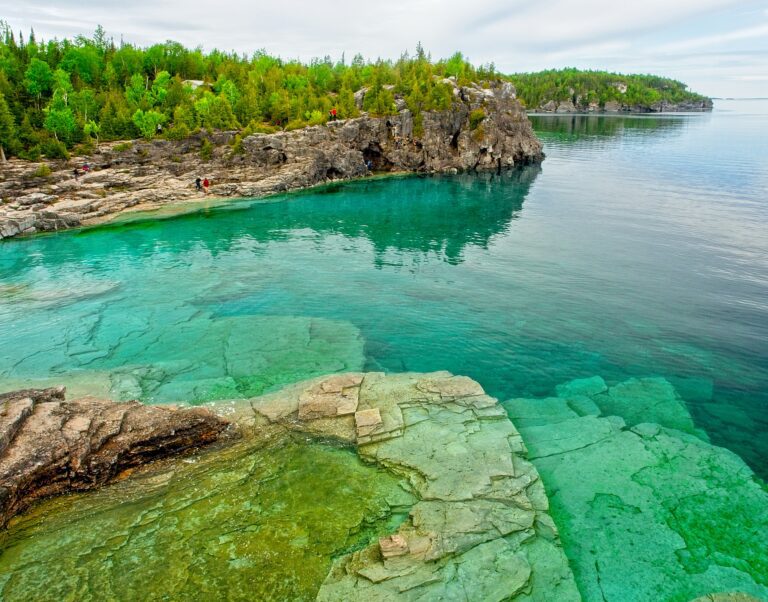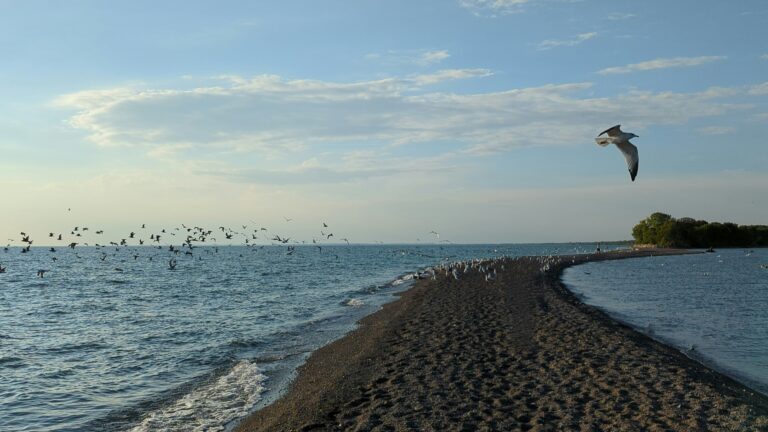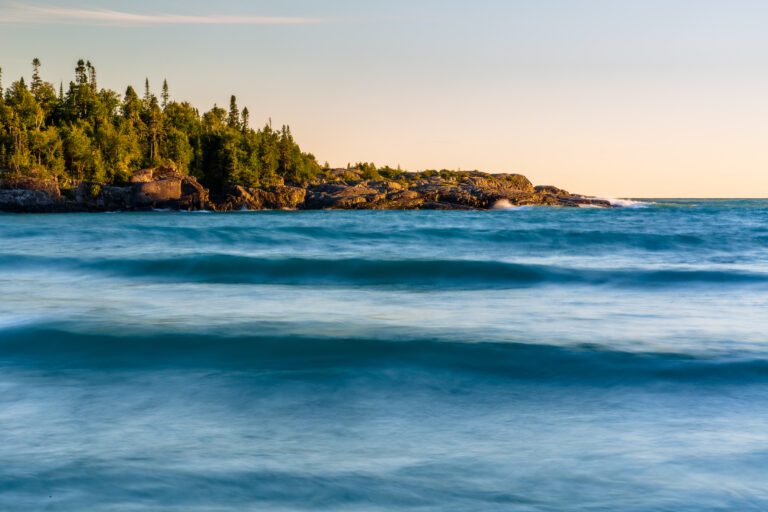Thousand Islands National Park’s visitor center is closed for the season and will reopen in 2025, typically operating during summer months only. Exact hours will be available closer to the reopening date.
The entrance fee at Thousand Islands National Park is $8.50 per vehicle for a daily pass, or $21.75 for a vehicle and boat trailer, which includes boat launching. Annual passes are $236 for a vehicle and boat trailer. Youth 17 and under enter free.
By Car: Via Highway 401 (Canada) or state routes (U.S.), then follow park signage. By Boat: Launch from regional marinas. By Ferry: Access Wolfe and Howe Islands. By Plane: Fly into Kingston/Norman Rogers (YGK) or Watertown (ART), rent a car. Guided Tours: Local operators offer boat and island excursions.
At Thousand Islands National Park, parking is available at various locations, including Gananoque Municipal Marina, Misty Isles Lodge, and Mallorytown Landing. Fees apply, ranging from $4 to $10 per day. Overnight parking is available at some lots, such as Gananoque Public Parking for $8/day. Parking is suitable for cars, RVs, and motorcycles, with no specific size restrictions mentioned. Parking fees can be paid via the HONK mobile app at some locations.
Accessibility & permits
Emergency
- Cell service availability:Partial
Information not accurate?
Help us improve by making a suggestion.
Discover Serene Granite Islands and Crystal Waters on the St. Lawrence River
Nestled along the St. Lawrence River, Thousand Islands National Park is a mosaic of over 20 islands and countless islets. Kayaking, boating, and wildlife spotting abound. Explore Jones Creek Trail through wetlands and forests, relax at Mallorytown Landing’s sandy shores and visitor centre, or visit nearby Singer Castle and Boldt Castle by ferry. Paddle serene waters, watch osprey and herons, or camp on an island for an unforgettable nature connection. This park is a treasure for adventurers and families alike.
- Area (km²)
- 15.13
- Annual visitors
- 105 000
- Established year
- 1904
Top 3 Facts about Thousand Islands National Park
The region includes Georgina Island, which has its own microclimate and is home to 12 rare plant species, including the unique pink lady’s slipper orchid, within an area that supports a diverse biodiversity.
Over 100 historic shipwrecks lie beneath its waters, offering world-class scuba diving.
Spanning the Canada–U.S. border, it’s jointly managed by Parks Canada and the U.S. National Park Service.
Family programs
- Workshops & Hands-on Activities
Travel Tips
Plan Ahead
Reserve campsites and ferry or boat rentals in advance; check border-crossing requirements when traveling between Canada and the U.S.
Pack Appropriately
Pack layers, sun protection, insect repellent, sturdy shoes, reusable water bottle, and boating safety gear.
Respect Wildlife
Observe wildlife from a distance, follow Leave No Trace, and do not feed animals to protect habitats.
Stay Informed
Check the Parks Canada website or visitor centres for alerts, ferry schedules, trail and waterway conditions, and border updates.
Seasons
Late April–June: wildflowers bloom, migratory birds arrive, and weather is mild—ideal for hiking and boating.
June–August: warm, long days for kayaking, swimming, and camping; peak wildlife activity and boat cruises.
September–October: calm waters, cool air, brilliant fall foliage, fishing and photography with fewer crowds.
December–February: ice fishing, snowshoeing, and cross-country skiing amid snow-covered islands; many services limited.
Information not accurate?
Help us improve by making a suggestion.
Where to stay
Nearby parks
Frequently Asked Questions
Ready to dive into what Thousand Islands National Park has to offer? Let’s tackle some of the burning questions you might have as you plan your visit!
-
The closest city to Thousand Islands National Park is Gananoque, Ontario, Canada. It is located on the western boundary of the park and offers dining, lodging, and other amenities. The drive from Toronto to Gananoque is about 3-4 hours, depending on traffic.
-
Yes, there are child-friendly hiking trails. The Jones Creek Trails offer several easy loops, such as the Bear Loop, Turtle Loop, Heron Loop, and Eel Loop, which are relatively flat and suitable for the whole family. These trails range from 0.6 to 1 km and take about 20-25 minutes to complete.
-
You can bring your dog, but it must be on a leash no longer than 3 meters and under control at all times. Dogs are not allowed on most oTENTik sites or beach areas, except for sites 3B and 3E. They should not interfere with other visitors or harass wildlife, and owners must clean up after them.
-
Yes, there are parking fees. The daily flat rate is $8.50, and fees may vary slightly depending on the location within the park. Overnight parking is available for a fee as well.
-
Explore the St. Lawrence River by boating, kayaking, or paddleboarding past granite shorelines and numerous islands. Camp overnight on an island or in a waterfront oTENTik, and enjoy scenic hikes like the Jones Creek Trail. Take self-guided audio tours, relax in red chairs for iconic views, or engage in activities like scuba diving, cross-country skiing, and wildlife spotting.


















